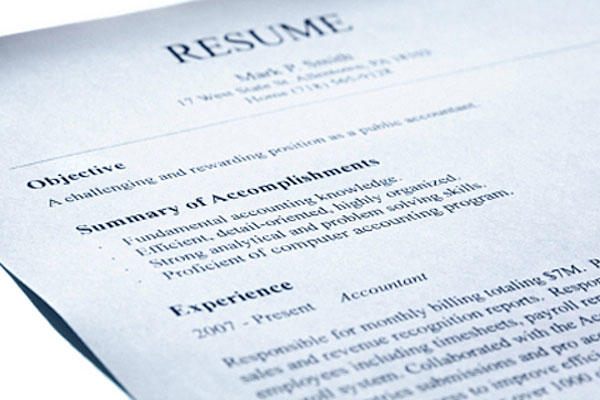We know that your skill sets matter. They are why you should get the job, what will make you do so well there, and why any organization would be foolish not to hire you. So how do you show that on your resume?
According to Human Resource professionals, the secret to selling your skills is to do so by using the right kind of language: Their language. The language of competencies.
Related: Does your resume pass the 6-second test? Get a FREE assessment.
Competencies (we've talked about them before) is just a fancy word to describe the skill sets, knowledge and know-how you already have. They're also what you see touted in the "qualifications" section of every job listing and, if you are doing it right, in every line of your resume.
For military spouses, they can also be the secret to career success. Disjointed resume? Choppy work history? First time applying for a job ever? No matter. This is where your competencies come in. It is all about how you show them on your resume and in your cover letter that will get your message across.
Apply with (and without!) compentencies
Employment experts tell us to apply to jobs for which we already have most of the competencies listed for the job, but not all of them. Why?
"We see people all the time trying to make lateral moves, just from one very similar job to another" says Anna, an Air Force wife and HR professional at a small community college in Colorado. "That's not great, because we look at that applicant and think he'll leave. We want someone who will gain as much from being part of our team as we will."
Related: For the latest veteran jobs postings around the country, visit the Military.com Job Search section.
She says the secret to being hired when you haven't had all of the experience required for a position is to sell the experience you do have and explain how it taught you the skill sets you will bring to your next job. You do that by talking about your competencies in a way resume-readers understand.
Take Sara. Sara is a Marine Corps wife in San Diego, desperate for work and hoping to sell herself on her communication skills.
"I wrote that I was an excellent communicator with strong verbal skills," she says. Sara spent several weeks work-shopping her resume with her husband and friends, sure there was a better way to get her point across. "I love working with customers and management, and I know my relationship skills make me stand out. Everyone says I'm an excellent communicator, so I put that front and center."
Sara is off to the right start, but with one major caveat: Everyone says they are a good communicator. Add in "hard worker" and "detail oriented," and you are looking at every cover letter every written. How can Sara (and you) make sure to stand out?
3 Steps to Highlight Your Competencies on Your Resume
1. Avoid broad descriptions of your competencies.
Sure you are an excellent communicator, but what does that really mean? Are you a speechwriter? A translator? A grant writer? A great communicator could be anything, and your resume is where you want to make clear exactly what it is you are. It is those competencies you want to sell.
Middlebury has a very helpful summary of the skill sets and experiences that constitute many of the dominant professional competencies, and for anyone working on a resume, its list is a great place to start.
For communication competencies, it suggests using more finite competencies like "communicating effectively," "explicit and concise writing," "outstanding writing skills," and "promotional writing for funding purposes" among many others. Those stand out in a way "excellent communicator" does not.
Related: The Military Spouse Employment Manual
"Narrowing down like that, that's something a communicator should be good at," Sara laughs. When working on a resume, she is absolutely right.
2. Work to identify your real skills.
If you are just starting on your resume or are trying to figure out what skills you should put front and center, try this small exercise to get your brain churning on your competencies. Ask yourself the following five questions, and try to use active verbs when giving your response:
What has been your biggest professional success thus far?
If you could have any job in the world, what would you be?
What would your day look like doing that thing?
What would friends say is your best skill?
What motivates you to do your very best?
3. Focus on how you developed your competencies.
When you start nailing down your competencies, focus on how you developed those traits. Did you learn them on the job? Did you learn them from a mentor? Did a previous employer help grow you in that capacity? Try to tie these skills and assets to times in your career (either volunteer or paid) so that you can show professional growth on your resume.
In tying your competencies with the time in your life in which you mastered them, you are showing your employers that you can grow on the job and learn along the way.
"We don't want to hire someone who has done the job before," Anna says. "We want to hire someone who will be happy with it. That means they have to be challenged and growing, too."
Focus your whole career on competencies, Military Spouse.
As you move from job to job, you will find your competencies grow with your experiences. The military community has long touted the skills-based (or "functional") resume for military spouses, and while that can be a helpful approach, it misses the larger calling: It isn't about focusing your resume on your skill-sets and competencies; it's about focusing your whole career on them.
Start now. What are your core competencies? Where do you think they could take you?
Looking for more job tips?
Sign up for a free Military.com membership to have military news, updates and job resources delivered directly to your inbox.























